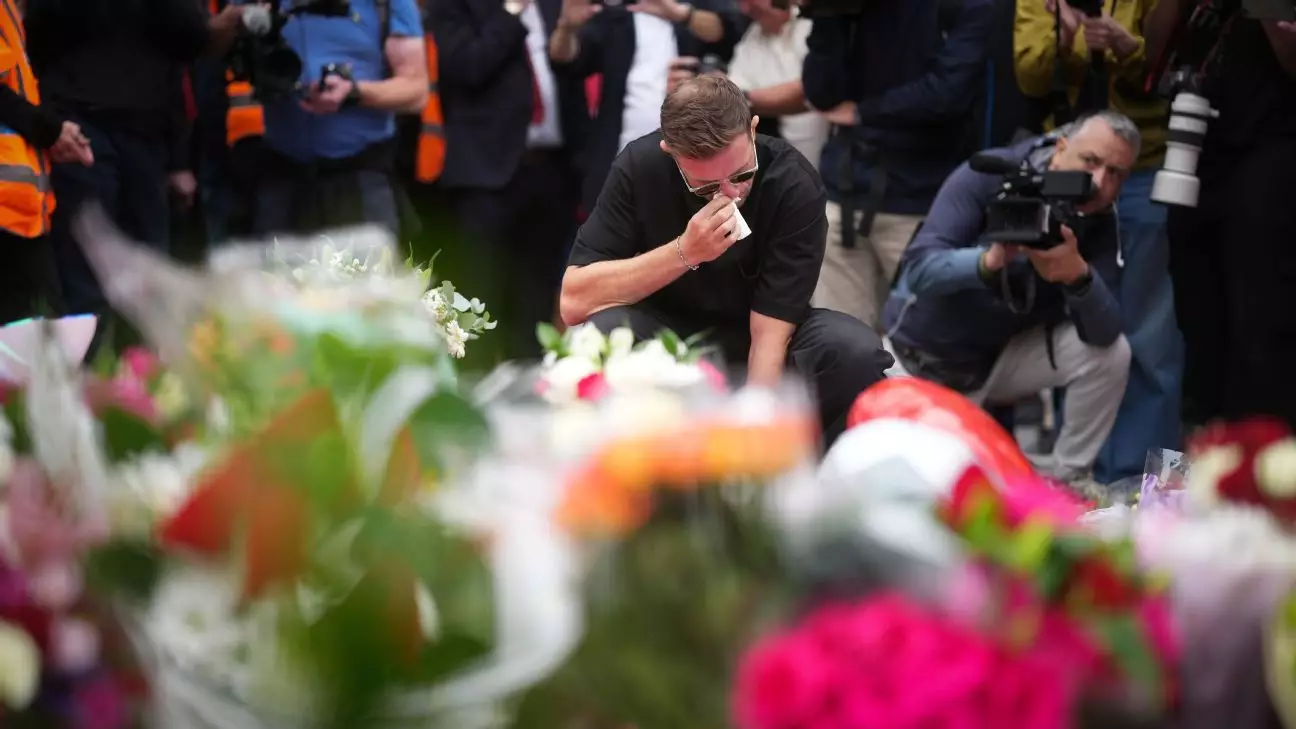The sudden and tragic death of Diogo Jota is a devastating reminder of life’s precariousness and the fragile veneer with which we often hide our deepest vulnerabilities. Jota, a talented footballer and family man, was more than just an athlete; he was a symbol of perseverance, hope, and human connection. His untimely passing cuts through the veneer of sportsmanship and exposes the raw, unfiltered pain that grief brings—pain that no amount of fame or success can shield us from.
What makes Jota’s death especially tragic isn’t just the loss of a remarkable football talent but the way it shatters the illusions of invincibility often associated with celebrated figures. It strips away the glamour of professional achievement and reveals the very real, human toll of sudden tragedy on families and communities. His death, along with his brother André Silva’s, is a stark warning of life’s unpredictability and the cruel reality that even the most promising lives can be snuffed out in an instant.
The reactions from Liverpool’s squad and global football icons reveal another critical dimension: the community’s collective grief and acknowledgment of how fragile our shared humanity truly is. Jordan Henderson’s visible tears and heartfelt tribute remind us that behind every sport, behind every victory, there’s a network of relationships that define us more profoundly than medals or records. The emotional outpouring from teammates underscores an uncomfortable truth—these athletes are not just performers; they are deeply interconnected human beings capable of profound love and grief.
The Personal and Collective Impact of Tragedy
Jota’s family’s suffering underscores the cruel depth of this loss. Just weeks after celebrating new beginnings—marriage and the birth of a third child—his life was cut short. The grief extends beyond the personal tragedy into the broader societal realm, prompting us to reflect on how society cares for and supports those enduring such grief. The funeral arrangements and public mourning highlight the communal need to honor and remember the departed, serving as a collective act of healing and remembrance.
However, what should merit reflection is the societal tendency to glamorize athletes and public figures, often overlooking the human stories behind the headlines. Jota’s story is a visceral reminder that these individuals have families, hopes, fears, and moments of vulnerability—sides we tend to avoid acknowledging in the pursuit of entertainment or admiration. His death challenges us to see beyond the athlete and recognize the person who, in his brief life, managed to touch so many lives.
One aspect that must be confronted is how society processes grief—do we truly support those who are left behind? The depiction of Rute and the children left to face an incomprehensible future reminds us that each loss isn’t just a personal tragedy but a societal obligation. The emotional narratives from Henderson, Salah, and Alexander-Arnold underscore the importance of community in grief—a lifeline that sustains the bereaved through their darkest hours.
The Broader Implications: A Call for Compassion and Reflection
This tragedy invites a deeper reflection on societal values, health, and safety. The fact that Jota and his brother died in a car crash illuminates issues surrounding road safety, mental health, and the psychological toll of fame. While some might excuse such accidents as merely tragic happenstance, it raises questions about how we as a society prioritize safety and support those under immense pressure.
In the context of center-wing liberalism, there’s a moral imperative to advocate for systemic change—improving road safety, providing mental health resources, and fostering a culture that values human well-being over superficial success. The loss of such a young, vibrant life forces us to reckon with the imperfections of the systems that should protect us. It’s an indictment of societal priorities that such tragedies continue to occur despite advancements in safety and healthcare.
As a society, we also need to consider how we support grieving communities and the families of the bereaved. It’s not enough to offer fleeting condolences or superficial gestures; real change requires sustained investment in mental health services, community outreach, and public policies that safeguard lives. Jota’s story is a tragic emblem of how lives can be abruptly and unfairly taken, and it challenges us to ask: Are we doing enough to prevent future tragedies? Are we genuinely fostering compassion and resilience within our communities?
While the football world mourns and echoes the heartfelt tributes, it’s vital that these moments of grief propel real action. The loss of Diogo Jota transcends sports; it’s a solemn call for collective responsibility—a demand for us to build a society that values human life, compassion, and safety above all else. Only then can we hope to honor his memory in a way that doesn’t just mourn but actively works toward preventing future heartbreaks.

